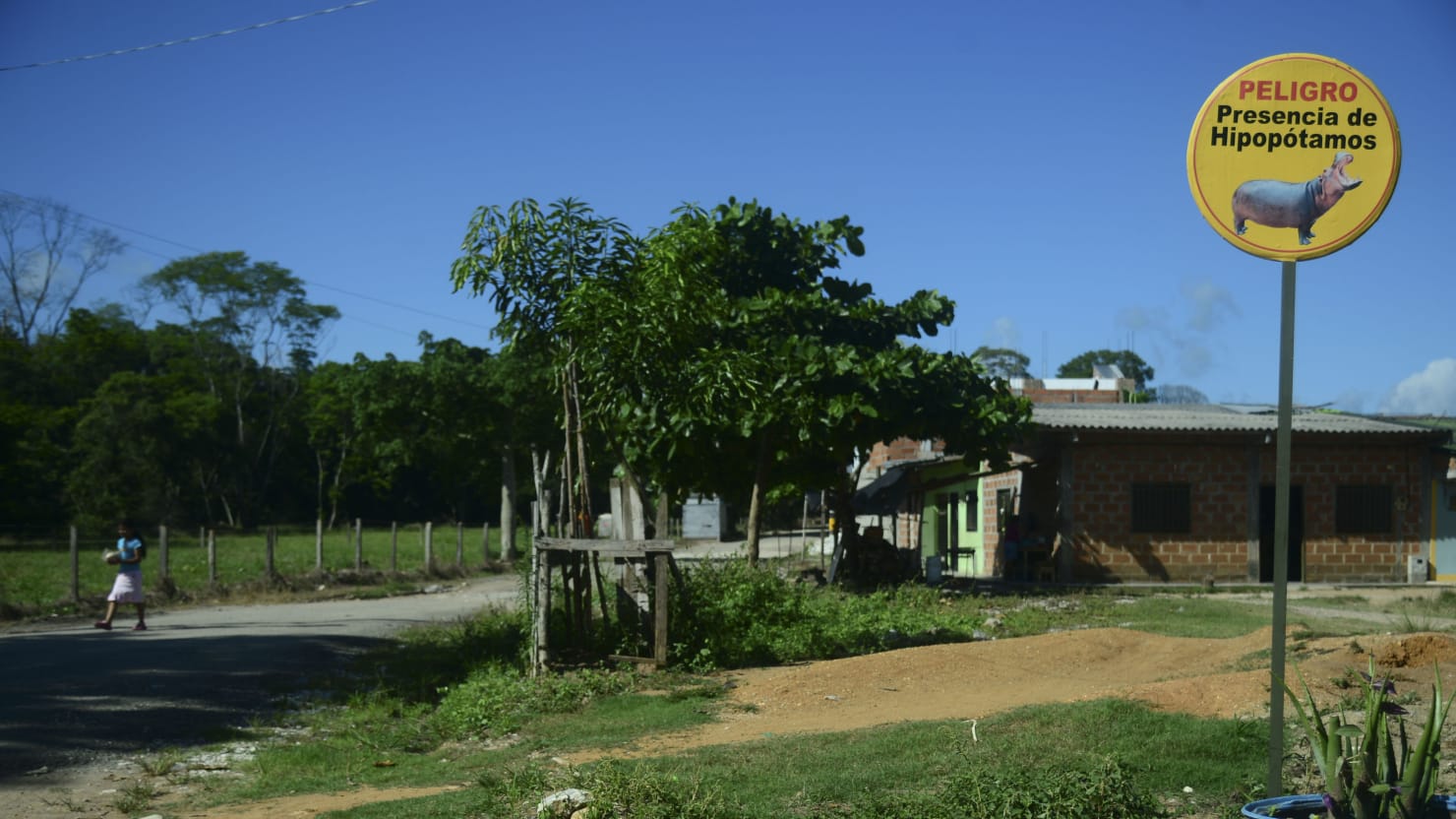Up to 100 hippos, all descendants of four animals illegally imported into Colombia by smuggler Pablo Escobar in the late 1980s, threaten Colombia’s wetlands and river systems.
Scientists said The Daily Telegraph that the country must now eliminate the aggressive “cocaine hippos” that roam the Magdalena River basin as they voraciously breed in the country’s humid, warm climate. In their natural habitat of Africa, hippos have to struggle with a long dry season.
Escobar, who was said to be worth his $ 25 billion at his height, making him the seventh richest man in the world, was known to buy lavish gifts and sometimes boasted of burning money literally to keep the his hot family.
In 2020, a nephew found an $ 18 million plastic bag hidden in the wall of one of his old homes.
His zoo, with elephants and hippos, was just one more indulgence.
When he was shot dead in 1993, the Colombian government took control of his property, including animals, most of which were euthanized or sent to zoos and parks.
However, four hippos, who lived in a remote pond, escaped abandonment; now there are dozens living in the wild. The exact number is unknown but the Telegraph puts the number between 80 and 100, which he says makes them the largest invasive species on the planet. Their number will increase to almost 1,500 by 2040 if left unchecked.
“No one likes the idea of shooting a hippopotamus, but we have to accept that no other strategy will work,” said environmentalist Nataly Castelblanco-Martinez The Telegraph.
Hippos have become a local tourist attraction; Paying visitors can tour the old Escobar mansion and visit the lake where several dozen hippos now live.
But researchers say hippos compete with native wildlife and contaminate local waterways with their toxic urine and feces.
Hippos are famously aggressive and kill more people each year than any other African mammal. Last year, a Colombian rancher was bitten by a hippopotamus and thrown into the air, breaking his leg, hip and several ribs.
Another method discussed to control hippos, sterilization, has not been successful, due to the fact that male hippos have retractable testicles.
This was said by David Echeverri López, a government environmentalist The Telegraph which is capable of castrating approximately one hippopotamus per year, while scientists estimate the population to grow 10% annually.
